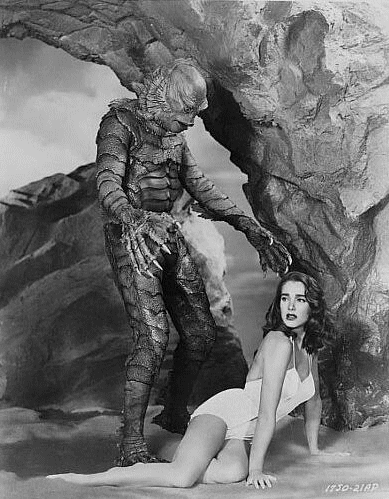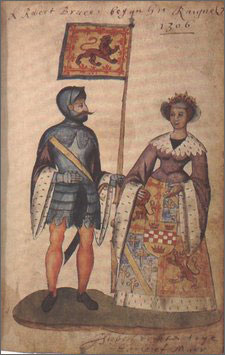I can see him clearly, as if he was
standing next to me at this moment. And yet his image remains hazy. According to his drivers'
license, he was five feet, nine inches tall, weighed 150 pounds and
had gray hair. He was also described as “ ...a slight
hollow-chested man”, of 46, with thin lips. And yet he remains an
enigma. A neighbor, when shown several photographs of him, said, “
"I knew him well and he never looked like that.” And he was
not just a physical enigma. Howard Kittle, the Clinton County agent
and Farm Bureau manager, received a letter from him, and admitted
that if anyone else had written it “I would have thought sure he
was insane.'” But that was before - when he was an elected
community leader, a trusted guardian of the communities' wealth and
its future. After - the Clinton County Republican-News was forced to
wonder, “Is the building of a modern institution which equips
children to meet the problems of the world a burden - or is it a
privilege?” You see, the man at issue was a anti-tax warrior and an American
narcissist.
Bath in 1927 was a little farm town of about 300 people 10 miles northeast of Lansing,
Michigan. “(It) had a ( grain) elevator, a little drugstore, and
you knew everybody within 20 miles” said a life long resident. In
1922 rural Clinton County closed its scattered one room school
houses. They used $8,000 of their own hard earned money to buy five
acres of ground just south of Bath. They borrowed $35,000 to build a
two story Consolidated School building. Here, classes would be
divided by ages, to protect the younger children from bullies. With
fewer teachers, higher standards could be required, even a college
teaching degree. And amenities such as a library, lunch programs,
athletics, music and art were added. And buses picked children up at
their front doors and returned them safely home each night. It was the foundation for the secure world we grew up in. And it was
not cheap.
The future always costs. You either
invest in it, or if you refuse, it is much more
expensive. In 1922 property taxes in Clinton county were $12.26 per
thousand dollars of valuation ($160 today, or over $16%). In 1923
those taxes had gone up by half to $18.80 ($235 today). This was not
the decision of a few liberals. This was debated for years within the
community. And over time the decision was to invest in the future of
Clinton County (in us), and spend the money. Three years later, eager to
eliminate the debt quickly, the elected leaders of Clinton County
paid off $7,200 of their obligation, and taxes topped out at one
dollar higher (to $240 per thousand in today's dollars). It was expected taxes
would now start to drop, but that did not take into account the
rising inflation of the late 1920's, and the selfishness of one
egomaniac who chose not to have a future.
I shall not use his name because of
something Neil Kaye, forensic psychiatrist at Jefferson Medical
College told Time Magazine in April of 2007. He said, “We glorify
and revere these seemingly powerful people who take life. Meanwhile,
I bet you couldn't tell me the name of even one of (serial killer)
Ted Bundy's victims.” So let me just share headlines from the New
York Times, dated Wednesday, May 18th, 1927, to explain
what this man did. “Maniac blows up school, kills 42, mostly
children; Had protested high taxes...He then kills himself and 3
others by Dynamiting Auto...Children Pinned in Debris. Others hurled
against walls or out windows – Searchers still hunt for missing.
Agonizing scenes in yard. Distraught parents find little ones dead
beneath blankets...”. The early numbers were wrong, of course.
The maniac killed eight adults and 34 children at the school, that
day. The last little victim, nine year old Richard Fitz, would die of
infection caused by his injuries, a week short of a year after the
Bath School Disaster, and that was the name of one of his victims.
Just before he murdered the children,
the maniac had bludgeoned his wife to death, restrained all his
animals in a burning barn, killed every fruit tree on his farm, and
burned all his expensive farm equipment. Interestingly, it was
figured by the cleanup crews, that he could have paid off his
mortgage and his property taxes by selling most of his well
maintained farm equipment, which, according to his neighbors, he
rarely used. Neighbor M.J. “Monty” Ellsworth wrote later, “He
was at the height of his glory when fixing machinery or
tinkering...He spent so much time tinkering that he didn't prosper.”
The maniac also stood out, as a farmer, for his meticulous
appearance. He changed his shirt quickly should a spot of dirt
appear on it and was often seen sitting on his front porch, in a
smoking jacket, puffing on a cigar. But his primary interest, his
obsession, was in cutting taxes.
The maniac had been elected to the
school board in 1924, two years after the new school had opened and
the first election after the new higher tax rate had been announced.
In 1925, after the death of Maude Detluff, the board's treasure, he
had been appointed to fill that position. His book keeping was, like
his appearance, meticulous. After his suicide, his books showed “a
long and detailed explination” of a 22 cent discrepancy. But in the
spring of 1926, when he ran for election to the job, the voters had
rejected him. Once again, the majority approved investment in the
future About this time the maniac stopped paying the mortgage or
insurance on his farm.The previous owner, his wife's relatives,
eventually began foreclosure proceedings His crops began to rot in
the fields.
There is a story that decades earlier,
a promising career as an electrician in St. Louis had been cut short
by a fall and a serious head injury. So farming was the maniac's
second choice. He married and moved to Clinton county right after the
First World War. He might have over paid for his farm, because land
prices were inflated at time. And his wife was afflicted with
tuberculosis, a wasting disease. The Klu Klux Klan would even
alleged his Catholicism encouraged him to destroy the school because
it was not a Catholic school. But even if all of that were true, none
of it would justify the cold blooded murder of 36 innocent children,
and eight adults. And all the maniac was focused on was his high
taxes.
Before the school was built, he had opposed
it. Once it was decided to build it, he insisted it should be a 10
grade institution, instead of 12. He opposed the inclusion of a
library, or athletics or music. And he lost each argument. Once the
building was constructed, he had enough supporters to win election to
the school board, where his obstinacy continued. He even opposed
giving the superintendent a paid vacation each year, and then argued it
should only be one week, not two. And as he lost each of these
arguments, his obsession grew, day by day. Words used to describe him
during this time were “surly”, “obstinate”, “impatient”
“arrogant” “closed mouth”. Eventually he began to invest his
money not on his farm, or his wife, but on explosives, and to sneak
them into the basement of the school house, rig them with a timer and
set them to explode early on a Wednesday morning, just after classes
had begun.
The day after the bombing while still
in shock and grief, the Clinton Country Republican ran an editorial,
which explains, far better than I ever could, the connection between
the maniac's crime and his anti-tax fever. “That he was insane
there is little doubt. But he was not always insane. To start with
he was merely antagonistic. Then he became radical.. He was the
victim of the progress of his own lack of balance...What a terrible
price to pay for narrow-mindedness. What an awful calamity for one
peaceful little community to bear for one man's lack of ordinary
American ideals...Never before have we known of aversion of the cost
of education taking such terrible form. There are, however, many
people who unthinkingly hamper and discourage the progress of good
schools and other institutions for the welfare and happiness of the
public. What are we going to do about it?”
It is almost a century later, and the
question begs to be asked of the Tea Party and the radicals who have
taken over the Republican Party - those who object to investing in the future because they do not believe they have one. What are we going to do about it?
- 30 -








































































